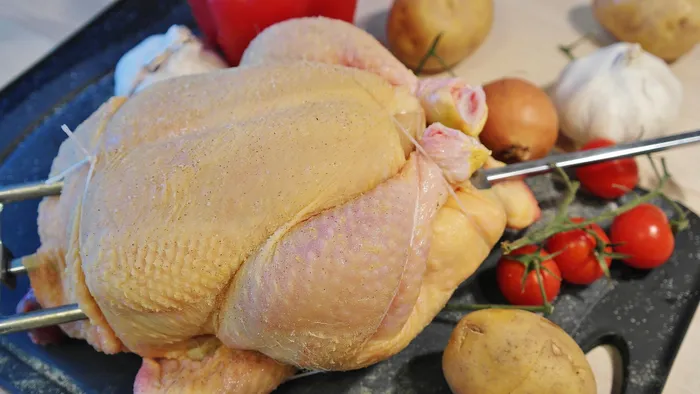
SAPA CEO Izaak Breitenbach said the US, under the African Growth and Opportunity Act agreements, along with Brazil, were amongst the major dumpers of poultry into the local market.
Image: Pixabay
The South African poultry industry has voiced concerns about the government’s decision to facilitate the import of 72 000 metric tons of poultry from the United States as part of measures to boost trade and reduce the tariffs.
The local poultry industry on Tuesday said it has been sacrificed to benefit the automotive sector and others focusing on profitable exports to the US.
The South African Poultry Association (SAPA) told Business Report that the decision was a surprise.
SAPA CEO Izaak Breitenbach said the industry had instead been hard at negotiations with the Department of Trade, Industry and Competition (the dtic) to suspend the US imports prior to the tariff negotiations.
Breitenbach said that the US, under the African Growth and Opportunity Act agreements, along with Brazil, were amongst the major dumpers of poultry into the local market.
"We had a meeting with Minister [Parks] Tau on May 16th at which we asked, as we had heard the rumours already, that we be consulted if there were concessions to be made with poultry," Breitenbach said.
"We had asked that the 72 000 tons from America be revoked. Our letters to his office have piled up without a response. This will have a very severe impact on the industry, which has been on a decline since 2009 due to the dumping."
In a joint statement of the dtic and the Department of Agriculture on the update to the negotiations with the US, the government said South Africa has already addressed sanitary and phytosanitary measures in compliance with the bio-security protocols affecting poultry, blueberries and pork.
The government said South Africa granted the US market access under the conditional self-ban and self-lifting system.
This will ensure that the US is able to leverage the Tariff Rate Quota of 72 000 tons already agreed in 2016.
With blueberries, the country has granted market access for US states that are free of fruit fly and agreed to mitigation measures with those states with fruit fly. Similar agreements have been made on pork which is open subject to the bio-security requirements.
"Consequently, the USA-Africa Trade Desk has informed us that it will be shipping containers of poultry and pork to South Africa in two weeks’ time, which is testimony that these issues have been resolved," Tau said.
"The shipments will come from the states of Georgia, Mississippi, South Carolina, North Carolina and Alabama through the Ports of New Orleans in Louisiana, Savanna in Georgia, and Norfolk in Virginia."
On the other hand, the Association of Meat Importers and Exporters (AMIE), which welcomed the announcement said for the beef export sector and South Africa’s broader red meat industry, said this was an important opportunity to build long-term growth.
AMIE highlighted the urgent need for the government to conclude standing regionalisation agreements, for both exports and imports, with its trade partners. It said these agreements limited trade restrictions to disease affected areas and safeguarded supply chain continuity when disease outbreaks occurred.
"AMIE, with our deep sector expertise and established global network - including strong relationships with industry organisations in SA’s key export markets - stands ready to support Government’s trade objectives," said AMIE CEO, Imameleng Mothebe.
Meanwhile, BerriesZA said the concession made for US berry imports into the country would not have an impact as it was counter season produce and also unlikely to be viable for the US exporters because of the distance and price point.
"It will be up to them (US exporters). The prices are not so high and unlike citrus like oranges or grapefruit, berries have a shorter shelf life. It is just too far," said Berries ZA operations manager, Elzette Schutte.
"We tried it with one container before but its just not viable. There are closer markets like Peru. We don't have a problem with US berry imports here."
BUSINESS REPORT